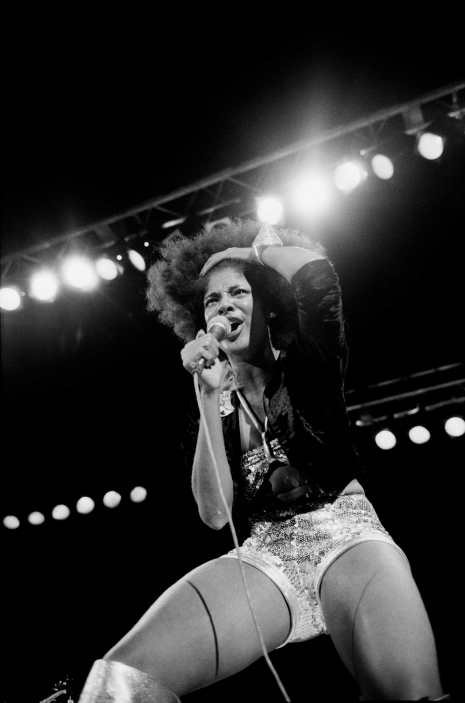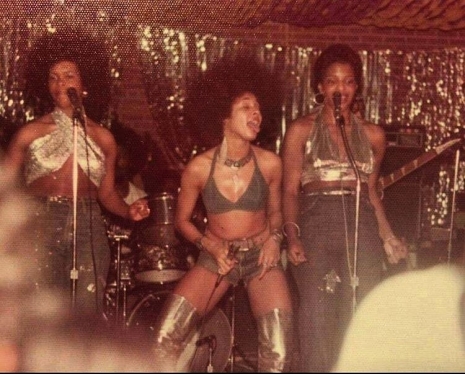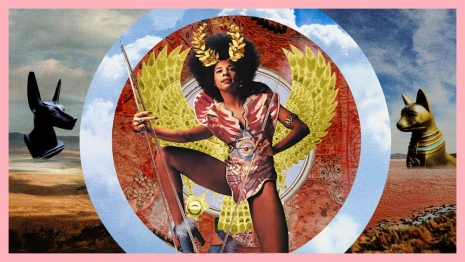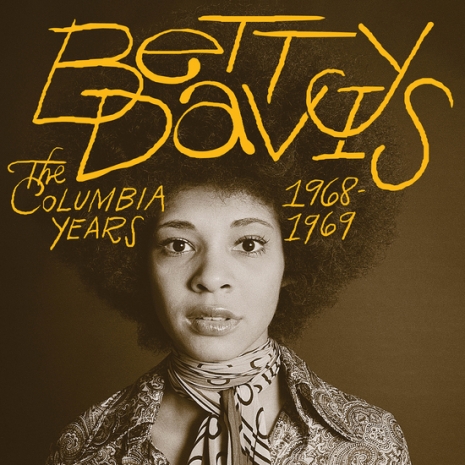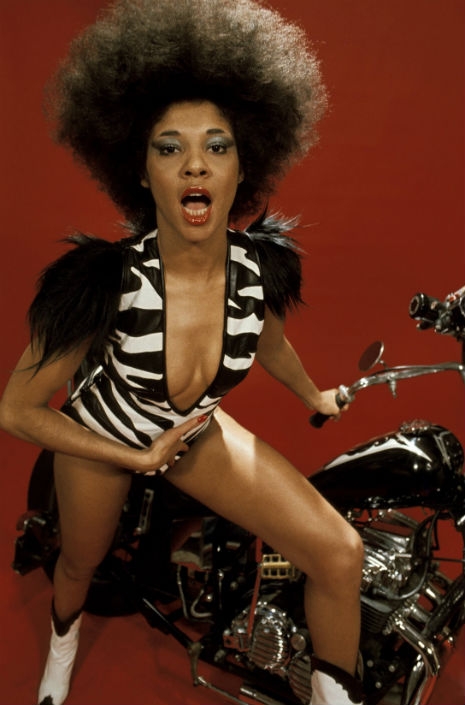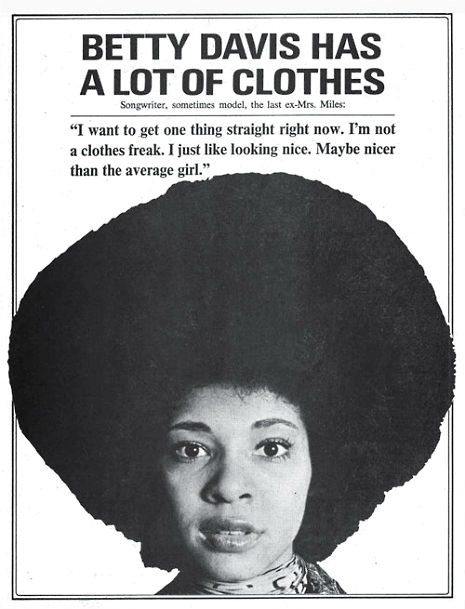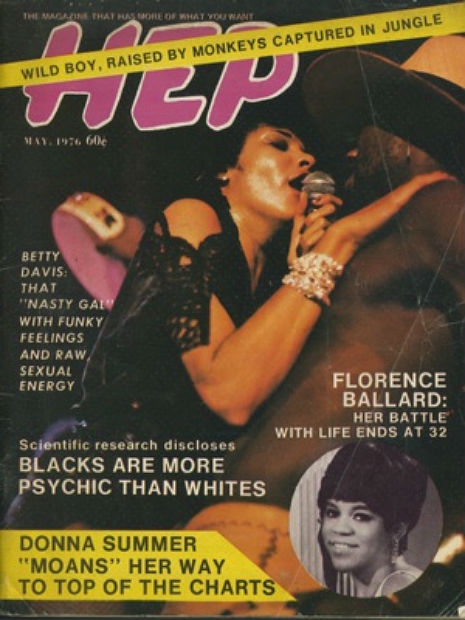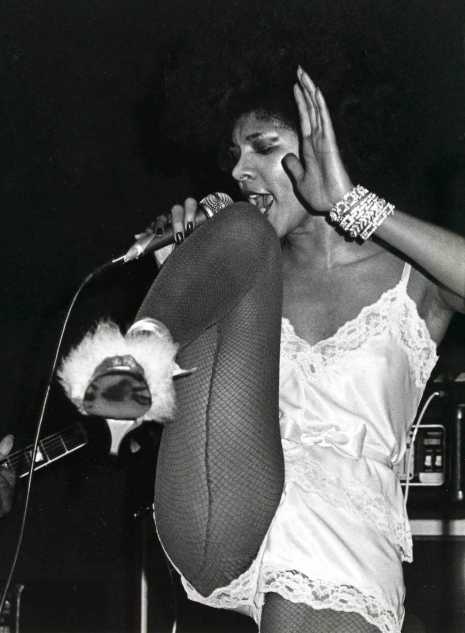
By the mid 1970s, Betty Davis had released three groundbreaking albums of sexually frank, hard funk, but with little to show for it. She had great, cutting edge material, and her concerts wowed audiences and generated controversy, but none of this translated into record sales. Her detractors—which included the NAACP—felt she was too provocative, too outrageous. After two albums for an independent label, she was courted and signed by a major, Island Records, but after the failure of her Island debut, Nasty Gal (1975), the suits were now also pressuring her to change. It was in this environment that Betty wrote what is perhaps her most personal song, one that outlines her plight as a famous, yet struggling, artist. It’s a tune that, for decades, few had heard.
In the summer of 1976, Betty Davis traveled to the rural city of Bogalusa, Louisiana to record album #4 at Studio in the Country. At the state-of-the-art facility, located out in the woods and free of the usual distractions, Betty went to work. With her core backing band, Funk House, and Davis in the producer’s chair, they went about getting Betty’s new songs down to tape. Among those tracks was the highly autobiographical, “Stars Starve, You Know.”
![]()
Though she often sang about her life and career in song, “Stars Starve, You Know” was different. Seeming to put all of her frustrations into a single, furiously funky number, Betty sang about the demands placed upon her to change, to tone down her act, to sell out—to no longer be herself.
They said if I wanted to make some money
I’d have to change my style
Put a paper bag over my face
Sing soft and wear tight fitting gowns
They don’t like the way I’m lookin’
So it’s hard for my agent to get me bookin’s
Unless I cover up my legs and drop my pen
And commit one of those commercial sins
At numerous points, she calls out her record company—by name.
I said go on and be yourself man
Because I sure can’t be mine
I said
Ain’t no business like show business
I said
Tell me can you spare a dime
I’m hungry
Ah hey hey Island
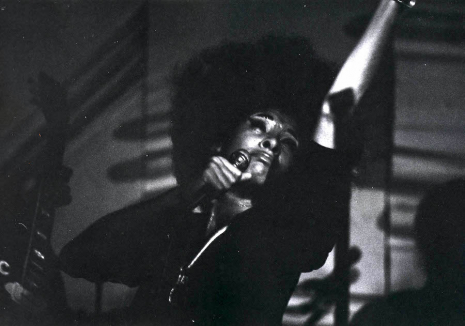
While a serious, real song about the perils of the music industry, Betty injects humor into it and there’s a playfulness in her delivery.
Though an album was completed and mixed by the summer of ‘76’s end, the tapes were shelved. It’s unclear why, though Betty later said it was due to an unrelated dispute with the head of Island, Chris Blackwell. Surely contributing to the label’s decision was “Stars Starve, You Know,” which they surely weren’t happy with, nor could they have been pleased with the rest of the material, which was as uncompromising as ever. 30-plus years later, the album was released as Is It Love or Desire (2009).
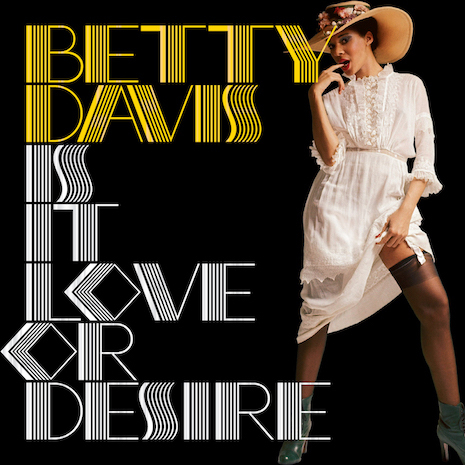
Following the Bogalusa sessions, Betty was dropped from her label. She soon would go across the pond to London, where she continued to struggle. By the early 1980s, she had left her music career behind, staying out of the public eye. In recent years, she has granted the occasional interview, and participated in the documentary, Betty Davis: They Say I’m Different. After 40 years, this summer marked her return to music, writing and producing this track.
Previously on Dangerous Minds:
A blistering 1976 live set from the Queen of Funk, Betty Davis
Legendary ‘lost’ Betty Davis recording sessions from 1969 (with Miles Davis) have been found!






